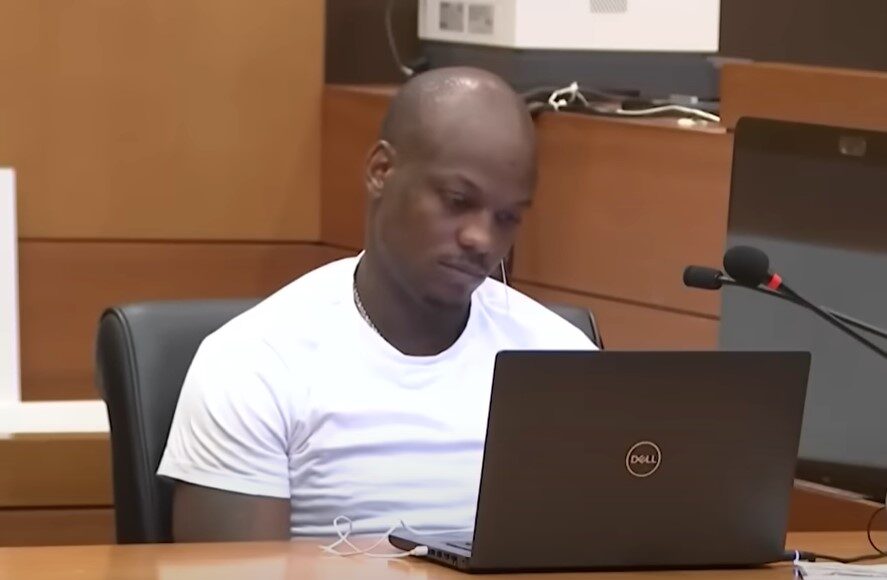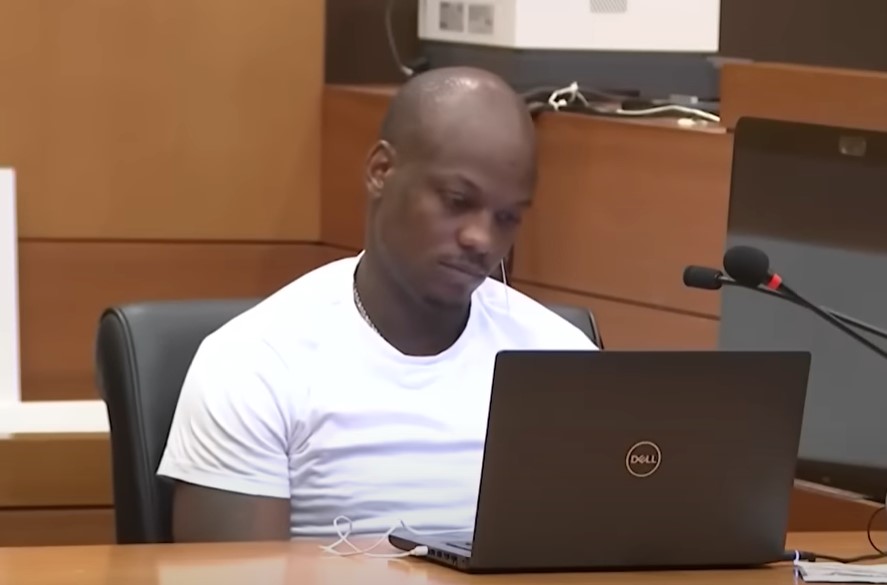Lil Woody Quits Music Over Rap Industry Culture
Lil Woody, a rapper who gained attention during the YSL RICO case in Fulton County, has decided to step away from music due to his dissatisfaction with the state of the rap industry. The artist, whose real name is Kenneth Copeland, was involved in the high-profile Young Thug trial as a star witness, but his experience in the industry and the courtroom has led him to reevaluate his life and career choices.

The Incident That Changed Lil Woody’s Perspective
Lil Woody’s decision to quit music came after a personal incident that left him rethinking his future. He was involved in an accident where he was left lying in the middle of the street, with no one offering help, and the only people around were bystanders recording with their phones. He recalls seeing sympathy from the police but none from the people who were around. This experience left a deep impression on him, showing him the stark reality of people’s behavior and the lack of genuine support.
Although he survived the incident with stitches and endured a lot of pain, it was the situation in the rap industry that drove him to the conclusion that he would no longer make music. Lil Woody has become disillusioned with the pressure to conform to an image of violence and street credibility that the industry often promotes. For him, the culture within rap music is centered around maintaining a certain image, which he no longer wants to be a part of.
The YSL Trial and Lil Woody’s Role
Lil Woody’s involvement in the Young Thug trial added further complexity to his career. He was supposed to be a key witness during the trial, but his testimony did not go as expected. During his time on the stand, he was evasive, often stating, “I don’t recall.” This led to a mixture of reactions, with some praising him for his lack of cooperation. In 2015, a video surfaced where Lil Woody had spoken with police detectives, but his trial testimony reflected a different stance. Despite the challenges of being in such a high-profile trial, he maintained that he was doing what was necessary to protect himself, feeling like he had no control over the situation.
In his reflections on the experience, Lil Woody shared that he was afraid during the trial and unsure about who he could trust. His lack of trust extended to both the prosecution and defense, and the entire process left him with a sense of helplessness. However, he has since become determined to take his life more seriously and to hold himself accountable for his actions. His time in the courtroom, combined with his personal experiences, has led him to a point of introspection.
A Change in Life and Values
Following his disillusionment with the rap industry and gang violence, Lil Woody has distanced himself from that lifestyle. He has made it clear that he no longer supports gang-related behavior and has taken steps to turn his life around. In fact, he wrote a book titled Birx Up, Guns Down, which reflects his efforts to encourage others, especially young people, to avoid gangs. Furthermore, he plans to create a documentary about his life, shedding light on his journey of self-discovery and transformation.
Lil Woody’s advocacy work includes efforts to keep children away from gangs and street violence. He believes that the path to a better life is one where young people choose education and self-respect over violence. His personal journey has led him to share his story with others, urging them to find alternative ways to succeed in life without resorting to harmful behaviors.
Quitting Music and Challenging Industry Norms
For Lil Woody, quitting music was not an easy decision, but it was one he felt necessary to make. He expressed his frustration with the rap industry’s culture, which, in his view, forces artists to embody violent or criminal personas to succeed. He believes the industry has pushed too many artists towards gang life and criminal activity, something he feels is harmful to both the individuals involved and the culture at large.
Woody’s decision to leave music comes with a call for change. He wants the industry to shift its focus from glorifying violence and street cred to supporting a broader range of experiences and identities. According to Lil Woody, being a successful rapper does not require being involved in crime or violence. He wants young people to understand that they can pursue their dreams in music without adhering to a negative or dangerous image. Instead of endorsing harmful stereotypes, Woody advocates for a rap culture that embraces education, hard work, and personal integrity.
While he may not be releasing music anytime soon, Lil Woody is still active in his mission to make a positive impact. He sees his future as one of advocacy, education, and personal growth. He aims to inspire others to leave behind the toxic elements of the industry and build a future that is not defined by violence or fear.
In conclusion, Lil Woody’s decision to quit music and his growing disillusionment with the rap industry reflect broader concerns about the pressures faced by artists, particularly within the hip-hop community. His journey of self-improvement, from his testimony in the YSL trial to his current efforts to fight gang violence, showcases a transformation that is driven by personal growth and a desire for a better world for the next generation.

